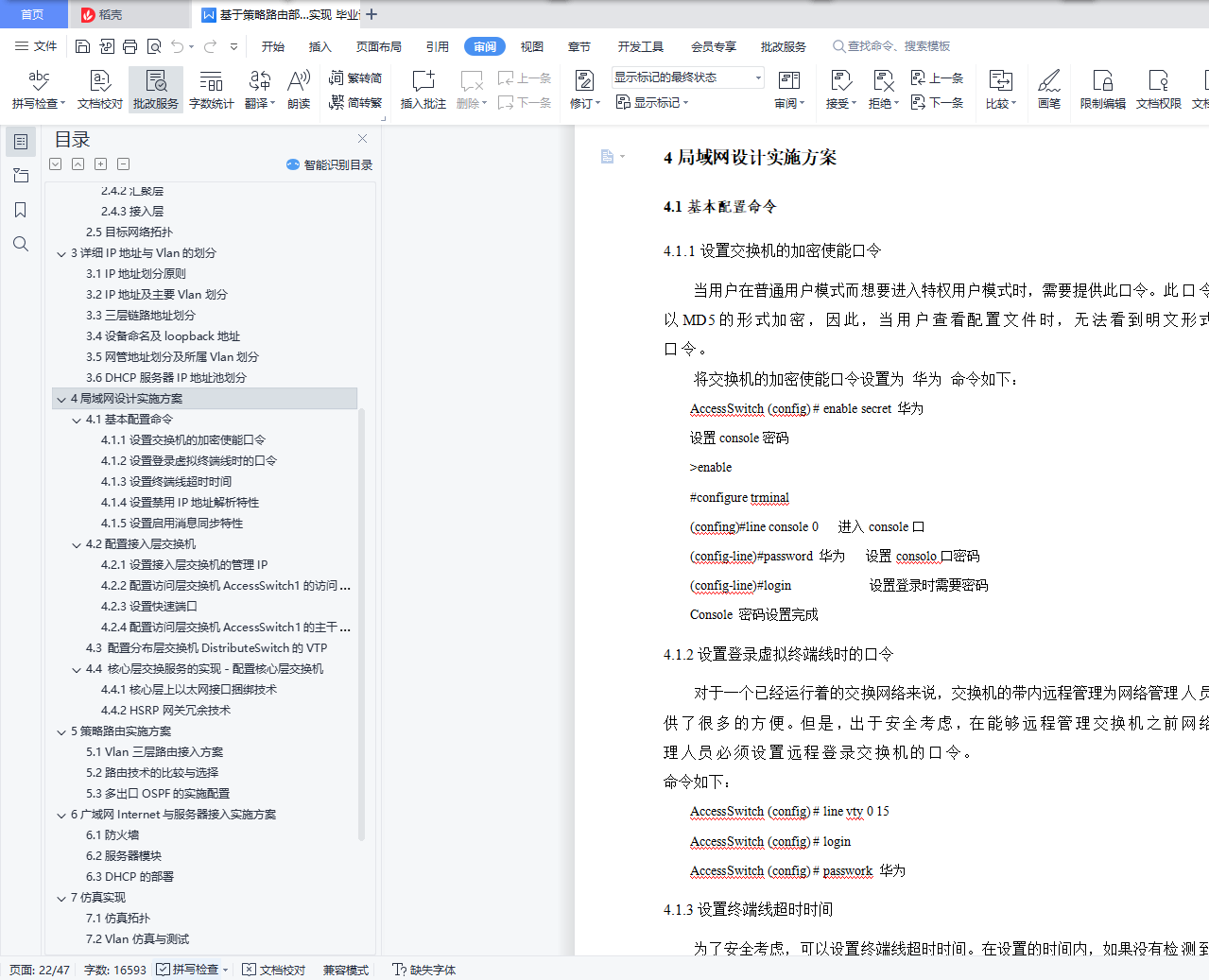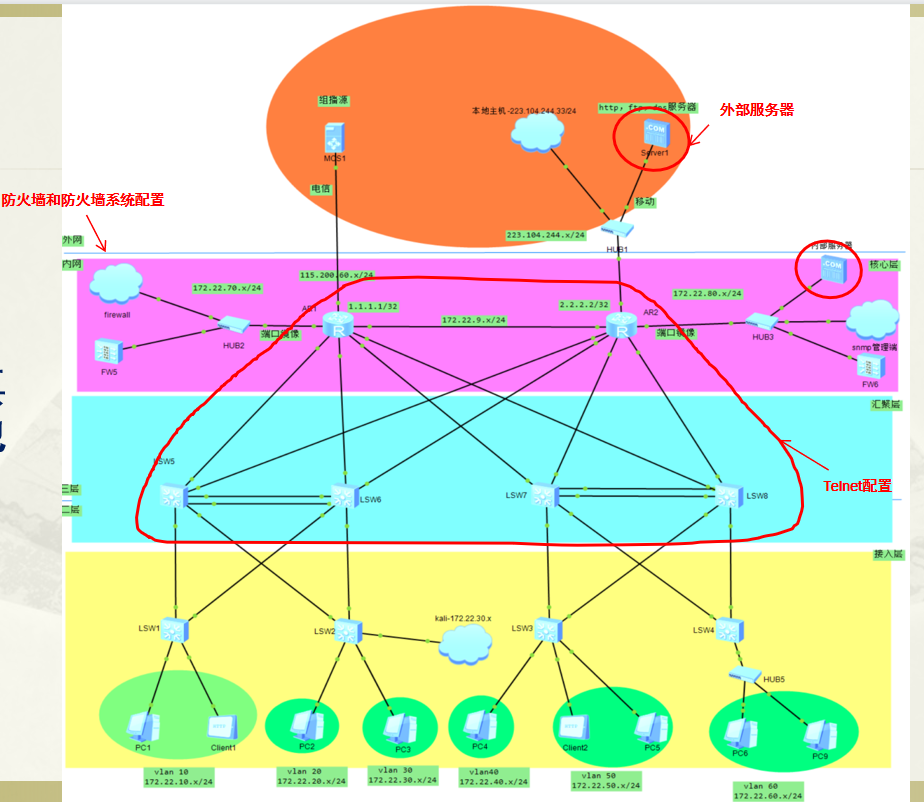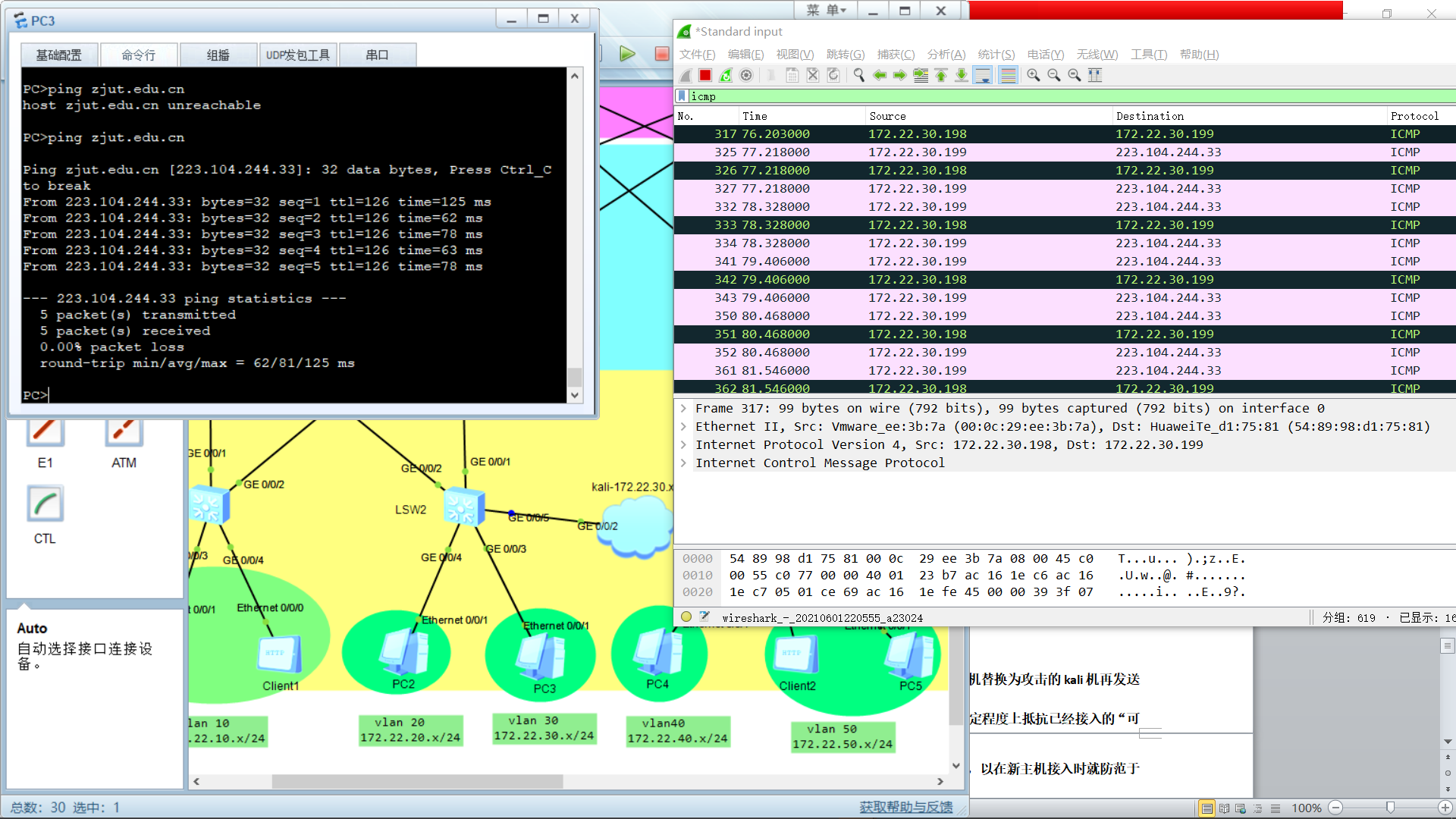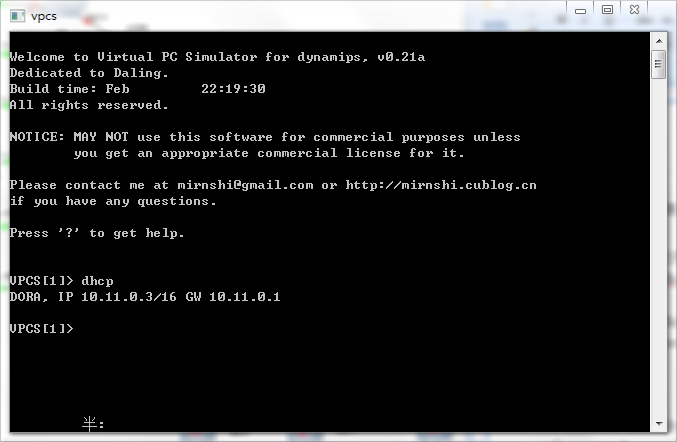基于策略路由部署的网络多出口设计研究与实现
摘 要:基于策略的路由是一种比基于目的网络的路由更灵活的数据包路由和转发机制。路由器处理需要转发的数据包,通过路由图决策,路由图确定数据包的下一个路由器转发路径。该设计以校园网为背景,采用多出口周边网络方案,可以缓解CERNET与公网互联不畅的问题,但会导致周边网络路由复杂。为此,您应该在实施此方案之前规划好您的周边网络路由,并通过掌握该流量在您的周边网络中的转发过程来有效地预留流量。外网只能访问内网记录服务器,内网主机可以自动选择出口访问外网。实验基于典型计算机网络环境对网络功能的要求,使用ENSP模拟器构建整个网络拓扑。在实现网络功能的过程中,策略路由主要用于完成组网设备的配置和最终结果的验证。
关键词:策略路由;网络多出口;校园网络;ENSP;模拟器
Research and Implementation of Network Multi-Exit Design Based on Policy Routing Deployment
Abstract:Policy-based routing is a more flexible packet routing and forwarding mechanism than purpose-based routing.The router processes the packets that need to be forwarded, and through the routing graph decision determines the next router forwarding path of the packet.The design takes the campus network as the background and adopts the multi-exit peripheral network scheme, which can alleviate the problem of poor interconnection between CERNET and public network, but will lead to complex surrounding network routing.To this end, you should plan your peripheral network route before implementing this plan, and effectively reserve the traffic by mastering the forwarding process of the traffic in your peripheral network.The extranet can only access the Intranet record server, and the Intranet host can automatically select exits to access the extranet.The experiment builds on the whole network topology of a typical computer network environment using the ENSP simulator.In the process of realizing network function, policy route is mainly used to complete the configuration and verification of final results.
Key words: strategic routing; network multi-exit; campus network; ENSP; simulator
目 录
1引言 1
1.1背景和意义 1
1.2研究综述和主要方法 2
1.2.1地址资源 2
1.2.2路由分析 2
1.2.3路由策略 3
1.2.4优化处理 4
1.3研究目标与内容 5
2总体设计 7
2.1设计原则 7
2.2需求分析 7
2.3技术选型 7
2.3.1 Vlan 使用Vlan技术主要考虑到以下优势 7
2.3.2 STP生成树技术与HSRP热备份路由协议技术 8
2.3.3以太网捆绑技术 8
2.3.4 OSPF多出口技术 8
2.4设备选型 8
2.4.1核心层选型 8
2.4.2汇聚层 9
2.4.3接入层 9
2.5目标网络拓扑 9
3详细IP地址与Vlan的划分 10
3.1 IP地址划分原则 10
3.2 IP地址及主要Vlan划分 10
3.3三层链路地址划分 11
3.4设备命名及loopback地址 12
3.5网管地址划分及所属Vlan划分 13
3.6 DHCP服务器IP地址池划分 13
4局域网设计实施方案 15
4.1基本配置命令 15
4.1.1设置交换机的加密使能口令 15
4.1.2设置登录虚拟终端线时的口令 15
4.1.3设置终端线超时时间 15
4.1.4设置禁用IP地址解析特性 16
4.1.5设置启用消息同步特性 16
4.2配置接入层交换机 16
4.2.1设置接入层交换机的管理IP 16
4.2.2配置访问层交换机AccessSwitch1的访问端口 17
4.2.3设置快速端口 17
4.2.4配置访问层交换机AccessSwitch1的主干道端口 17
4.3 配置分布层交换机DistributeSwitch的VTP 18
4.4 核心层交换服务的实现-配置核心层交换机 18
4.4.1核心层上以太网接口捆绑技术 19
4.4.2 HSRP网关冗余技术 19
5策略路由实施方案 21
5.1 Vlan三层路由接入方案 21
5.2路由技术的比较与选择 21
5.3多出口OSPF的实施配置 23
6广域网Internet与服务器接入实施方案 25
6.1防火墙 25
6.2服务器模块 27
6.3 DHCP的部署 28
7仿真实现 29
7.1仿真拓扑 29
7.2 Vlan仿真与测试 29
7.3 STP生成树仿真与测试 30
7.4 以太网捆绑测试 32
7.5网关冗余技术测试 34
7.6路由的仿真与测试 34
7.7 PAT仿真与测试 35
7.8 DHCP服务器测试 35
总 结 37
参考文献 38
致 谢 40


















